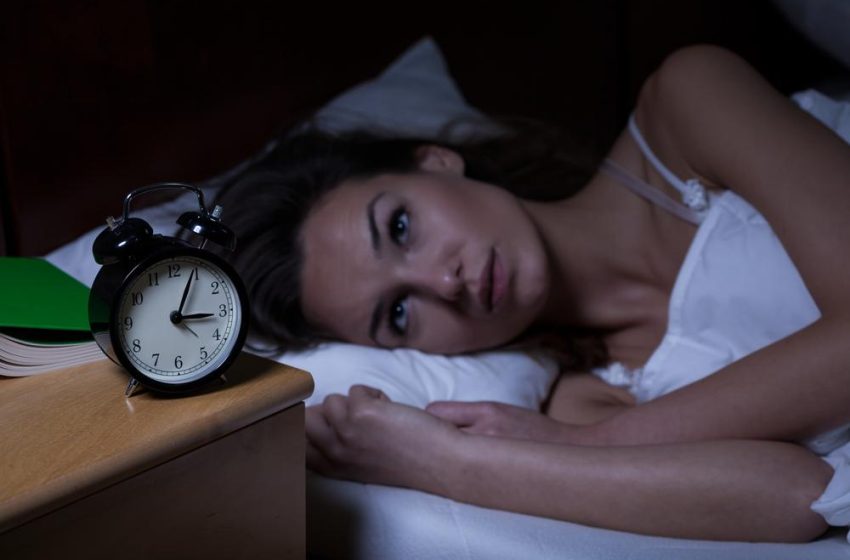Insomnia and Hormonal Imbalances: Understanding the Connection

Millions of individuals worldwide suffer with insomnia, which is characterized by trouble sleeping or staying asleep. While stress, lifestyle choices, or psychological problems are frequently mentioned as contributing causes, the importance of hormone imbalances is also becoming more widely recognized. Hormones are essential for controlling sleep-wake cycles and preserving general health. Insomnia and other sleep disorders may result from a disruption in these hormones. Effective management and treatment of insomnia require an understanding of the relationship between hormone abnormalities and insomnia. This post will examine the complex connection between hormones and sleep, including how hormonal abnormalities may aggravate insomnia and offer some possible remedies.
The Function of Hormones in Regulating Sleep:
It’s important to comprehend how hormones affect sleep regulation before delving into the relationship between hormonal abnormalities and insomnia. The sleep-wake cycle is influenced by several important hormones, including melatonin, cortisol, and several sex hormones.
Melatonin:
Due to its function in controlling the sleep-wake cycle, melatonin is frequently referred to as the “sleep hormone”. Melatonin is a hormone that the pineal gland releases in the evening to tell the body when it’s time to go to sleep. On the other hand, levels drop in the morning, encouraging waking. Insomnia can be exacerbated by disruptions in melatonin synthesis or sensitivity, which can cause trouble getting or staying asleep.
Cortisol:
Often referred to as the “stress hormone,” cortisol is involved in the intricate control of sleep. Cortisol levels normally follow a diurnal pattern, increasing in the morning to encourage wakefulness and decreasing throughout the day to ease the transition to sleep at night. Chronic stress or inconsistent sleep schedules, on the other hand, can throw off this rhythm and raise cortisol levels at night, which can cause problems falling asleep and staying asleep.
Sex Hormones:
Estrogen and testosterone are two examples of sex hormones that affect sleep cycles. Women’s sleep length and quality may be impacted by changes in these hormones throughout the menstrual cycle, pregnancy, or menopause. Likewise, variations in testosterone levels may impact men’s ability to sleep. Sex hormone imbalances can cause symptoms like mood swings, hot flashes, or night sweats, all of which can aggravate sleep disorders.
The Link Between Hormonal Imbalances and Insomnia: Now that we’ve discussed how important hormones are in controlling sleep, let’s look at how hormonal imbalances may be a factor in insomnia.
The Perimenopause and Menopause:
Hormone levels, especially those of estrogen and progesterone, fluctuate during the menopause, the end of the menstrual cycle, and the perimenopause, the period of transition preceding the menopause. The sleep-wake cycle may be disturbed by these hormonal fluctuations, which can result in hot flashes, sweats, and insomnia. Further aggravating sleep difficulties, lowering estrogen levels can also have an impact on mood and raise the risk of anxiety and despair.
Thyroid Disorders:
Hormones that control body temperature, energy levels, and metabolism are produced by the thyroid gland. Fatigue, irritability, and trouble sleeping are symptoms of thyroid problems, such as hypothyroidism (underactive thyroid) or hyperthyroidism (overactive thyroid), which can upset the balance of thyroid hormones. Because hypothyroidism affects metabolism and energy management, it is particularly linked to insomnia and other sleep disorders.
Stress and Cortisol Dysregulation:
The complex system responsible for the stress response and cortisol regulation, the hypothalamic-pituitary-adrenal (HPA) axis, can be dysregulated by prolonged stress. Long-term HPA axis activation can raise cortisol levels, which throw off the sleep-wake cycle and make insomnia more likely. Moreover, elevated cortisol levels may hinder the synthesis of additional hormones that promote sleep, such melatonin, so intensifying sleep disruptions.
Polycystic Ovary Syndrome (PCOS):
An high level of androgens (male hormones) in women is a characteristic of this hormonal condition. In addition to ovarian cysts and irregular menstrual cycles, PCOS can cause sleep disorders such sleep apnea and insomnia. Poor sleep quality can be caused by hormonal abnormalities linked to PCOS, such as high testosterone levels and insulin resistance, which can interfere with the sleep-wake cycle.
Adrenal Fatigue:
Adrenal fatigue, sometimes referred to as adrenal insufficiency or adrenal exhaustion, is a contentious term used to characterize a range of symptoms such as weariness, disturbed sleep, and trouble managing stress. Adrenal exhaustion hypothesis proponents contend that prolonged stress overloads the adrenal glands, impairing their ability to produce enough cortisol and other chemicals. Although adrenal exhaustion is not a recognized diagnosis in mainstream medicine, it is frequently linked to insomnia and other sleep disorders.
Approaches to Management and Treatment:
An interdisciplinary strategy that addresses both the underlying hormonal problems and sleep disruptions is frequently necessary to manage insomnia associated with hormone imbalances. The following tactics could be useful:
Hormone Replacement Therapy (HRT): To rebalance estrogen and progesterone levels, hormone replacement therapy (HRT) may be advised for women experiencing menopausal symptoms such hot flashes and sleep difficulties. It’s important to go over the advantages and disadvantages of HRT with a healthcare professional because it has the potential to cause side effects and hazards.
Lifestyle Changes:
Making good lifestyle choices can help maintain hormone balance and enhance the quality of your sleep. This include engaging in regular exercise, managing stress with practices like yoga or meditation, eating a balanced diet, and adhering to recommended sleep hygiene (e.g., setting up a regular sleep schedule, building a calming bedtime routine, optimizing sleep surroundings).
Thyroid Treatment:
Thyroid hormone replacement therapy or antithyroid drugs are commonly used to treat people with thyroid diseases, such as hypothyroidism or hyperthyroidism, respectively. Thyroid function can be properly controlled to reduce discomfort and enhance sleep.
Stress Reduction strategies:
By lowering cortisol levels and fostering relaxation, stress management strategies including progressive muscle relaxation, deep breathing exercises, and mindfulness meditation can help people fall asleep and stay asleep.
Nutritional Support:
A few vitamins and minerals may help maintain hormone balance and enhance the quality of your sleep. For those who have disturbed sleep-wake cycles, melatonin supplements, magnesium, and herbal remedies such as valerian root or passionflower, can assist induce relaxation and enhance sleep quality.
In summary:
Hormonal abnormalities are one of the many contributing reasons of insomnia, a complex sleep condition. In order to properly manage and cure insomnia, it is imperative to comprehend the relationship that exists between hormones and sleep regulation. People can enhance their general well-being and quality of sleep by incorporating focused treatment approaches, adopting healthy lifestyle practices, and addressing underlying hormone disorders. It’s critical to speak with a healthcare professional if you consistently have sleep problems so that you can identify the underlying causes and create a customized treatment plan. You can achieve better sleep and a higher quality of life with the appropriate strategy.




